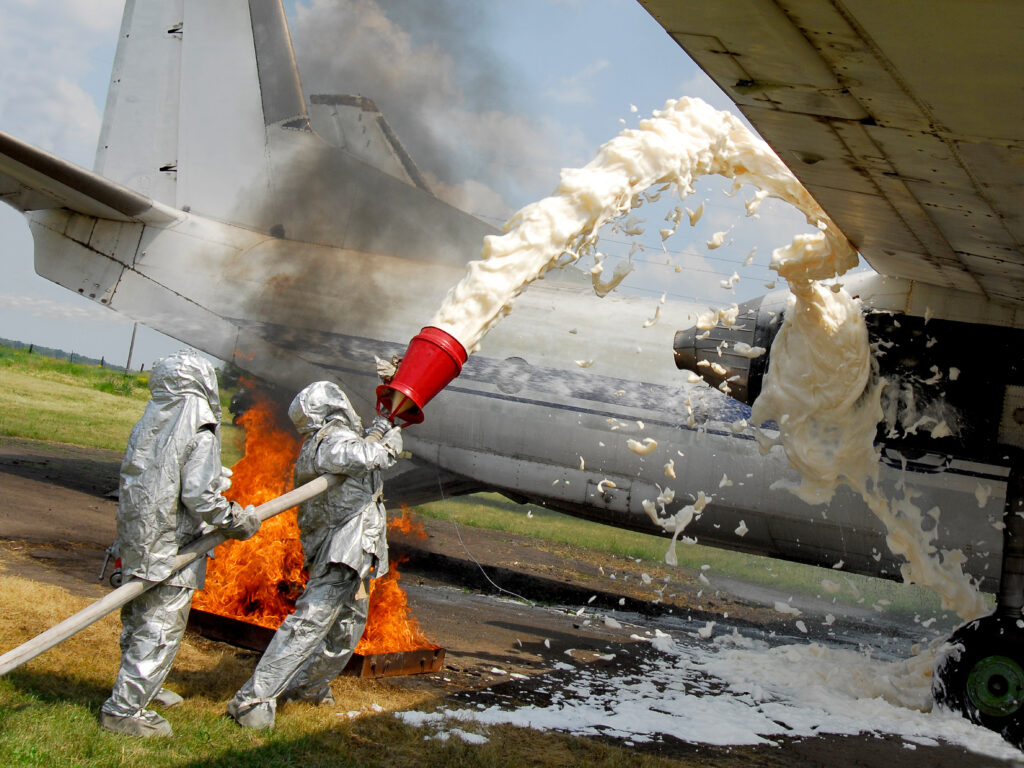The Department of Defense concluded Cannon Air Force Base in New Mexico is one of the most heavily contaminated sites in the country. The DOD included Cannon in the “top 10 of prioritized active US Air Force installations” for addressing PFAS contamination. This article discusses environmental concerns, health risks, ongoing cleanup efforts, and lawsuits related to Cannon AFB.

Military Investigates PFAS at Cannon AFB
Cannon Air Force Base in New Mexico became a focal point in October of 2015 due to the discovery of per- and polyfluoroalkyl substances (PFAS) contamination. These pervasive chemicals pose significant challenges to both the environment and public health. PFAS are chemicals that stick around for a long time and can cause cancer. They are often in the foam used to put out fires on military bases.
Understanding PFAS Contamination
PFAS, colloquially known as “forever chemicals,” exhibit remarkable durability in the environment, posing enduring threats to both human health and ecosystems. Additionally, the severity of PFAS contamination at CAFB impacts neighboring communities. PFAS exposure poses potential health impacts, including the following:
- Cancer: Studies have linked PFAS exposure to various cancers, including kidney, testicular, thyroid, and liver.
- Liver Damage: PFAS exposure has been associated with liver damage, including increased liver enzymes and fatty liver disease.
- Immune System Disruption: Research suggests that PFAS exposure may suppress the immune system, leading to increased susceptibility to infections and decreased vaccine effectiveness.
- Developmental Disorders: Researchers have linked prenatal exposure to PFAS to adverse developmental outcomes, including low birth weight, delayed development, and reduced immune function in infants.
- Endocrine Disruption: PFAS interferes with hormone regulation in the body, potentially leading to reproductive problems, thyroid disorders, and metabolic disruptions.
- Cardiovascular Effects: Studies show a correlation between PFAS exposure and increased risk of cardiovascular diseases, such as high cholesterol levels and elevated blood pressure.
Consistently, the EPA has issued national drinking water standards to protect public health.
AFB Lawsuits and Dead Cows
In October 2018, representatives for the Cannon military base talked to a farmer who owns a big farm nearby. They found PFAS in the water he used for his 5,200 cows. Because of the contamination, the farmer had to put down many of his cows. Others died soon after. He hasn’t been able to sell any milk or meat since 2018. The pollution has ruined his family’s farming business that has been going on for four generations. He still has the dead animals on his property covered in plastic because he can’t find anyone to take them away and dispose of them safely. Additionally, airmen and other military personnel have filed personal injury lawsuits related to their injuries caused by their exposure to Cannon’s contaminated water.
Conclusion
The severe contamination at Cannon AFB requires extensive remediation efforts. Remediation will likely take many years, possibly decades, to complete. Cannon published FAQ’s explaining their position and actions in response to this emergency.




